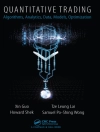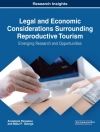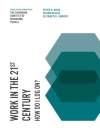Whilst it is impossible to argue that the earth is flat without fearing ridicule, fallacies in economics are widespread. Such fallacies pervade the intellectual sphere and even influence policy. Professor Geoffrey Wood of the University of Buckingham exposes such popular economic fallacies in this revised edition of Fifty Economic Fallacies Exposed. Professor Wood looks at, for example, the supposed dangers of free trade, the abilities of governments to control the economy, the effects of government regulation and whether millions of jobs depend on our continued membership of the European Union. These lucid and stimulating articles are invaluable to students struggling to master some of the complexities of economic theory and its applications, who often find that the most effective way to learn economic analysis is to see such fallacies exposed. It is a text particularly suitable for first-year economic students, complementing existing textbooks as it does, and clarifying basic concepts in economics while demonstrating the practical uses of economic theory.
Over de auteur
Geoffrey Wood is Emeritus Professor of Economics at City University Business School, London, and Emeritus Professor of Monetary Economics at the University of Buckingham. He has also taught at the University of Warwick, and been on the research staff of the Bank of England and the Federal Reserve Bank of St Louis. He has published extensively in the areas of monetary economics and international economics. Among these publications are Too Much Money?, with Gordon Pepper (IEA, 1975); Independence for the Bank of England?, with Forrest Capie and Terry Mills (IEA, 1993); The Right Road to Monetary Union Revisited, with John Chown and Max Beber (IEA, 1994); and Money Over Two Centuries: Selected Topics in British Monetary History (Oxford University Press, 2012), comprising work with Forrest Capie and others, written over a period of some twenty years. His recent research has been on central bank independence and on regulation. He is a member of the Academic Advisory Council of the Institute of Economic Affairs and a trustee of the Wincott Foundation.












